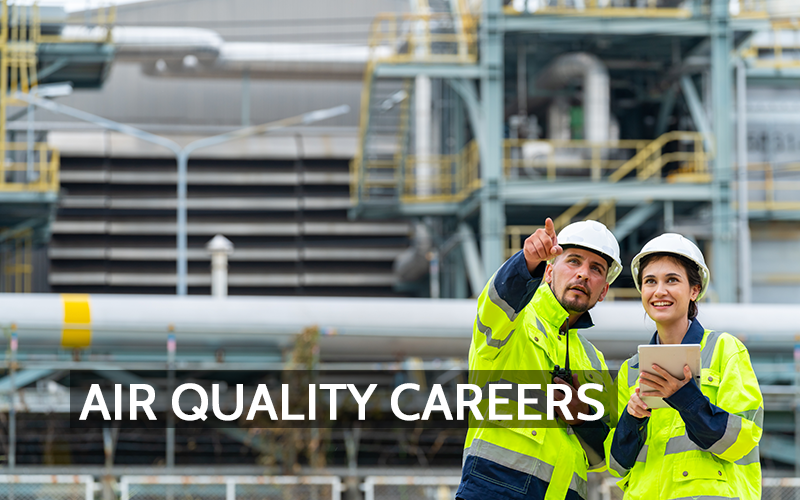As environmental concerns intensify globally, the field of air quality management has grown into a dynamic and essential sector. Professionals in this field play a vital role in monitoring, analyzing, and mitigating air pollution to protect public health and the environment. This article explores the burgeoning career opportunities within air quality, focusing on emerging fields, education requirements, and training pathways.
Growing Fields in Air Quality Management
The air quality sector encompasses various disciplines, each requiring specific expertise and training. Below are some of the most promising areas:
- Air Quality Monitoring and Modeling
- With advances in technology, monitoring and modeling air pollutants has become more sophisticated. This field involves using sensors, satellite data, and predictive models to track pollution levels and forecast air quality trends. Professionals in this area help develop early warning systems and inform policy decisions to combat air pollution.
- Indoor Air Quality (IAQ) Management
- Indoor air quality has garnered significant attention due to its direct impact on human health. Experts in IAQ management focus on reducing exposure to pollutants like mold, volatile organic compounds (VOCs), and particulate matter within homes, offices, and industrial spaces. This specialization is crucial for designing healthier indoor environments.
- Environmental Health and Toxicology
- This field studies the health effects of air pollution on humans and ecosystems. Environmental toxicologists assess the risks posed by pollutants such as ozone, nitrogen oxides, and fine particulate matter, providing data critical to regulatory frameworks and public health initiatives.
- Greenhouse Gas (GHG) Emissions Analysis
- As the world grapples with climate change, professionals specializing in greenhouse gas emissions are increasingly in demand. They measure, analyze, and develop strategies to reduce emissions from industries, transportation, and agriculture, contributing to sustainable development goals.
- Policy and Advocacy
- Crafting and advocating for air quality regulations require a deep understanding of environmental laws, science, and public policy. Experts in this domain bridge the gap between scientific research and legislative action, ensuring that policies are informed and effective.
Education and Training Requirements
To succeed in air quality careers, individuals typically need a solid educational foundation paired with specialized training. Below are typical pathways for the highlighted fields:
- Undergraduate Education
- Most careers in air quality begin with a bachelor’s degree in a related field, such as environmental science, chemistry, biology, or engineering. Courses in atmospheric science, environmental health, and data analysis provide a robust starting point for many roles.
- Advanced Degrees
- While a bachelor’s degree may suffice for entry-level positions, advanced roles often require a master’s or doctoral degree. For instance, air quality modeling experts often hold advanced degrees in atmospheric science or environmental engineering. Similarly, toxicologists typically need a PhD in toxicology, public health, or a related discipline.
- Certifications and Training Programs
- Professional certifications can enhance credibility and career prospects. Examples include:
- Certified Air Quality Professional (CAQP): This certification validates expertise in air quality regulations and technologies.
- LEED Accreditation: For IAQ specialists, Leadership in Energy and Environmental Design (LEED) accreditation demonstrates proficiency in sustainable building practices.
- Training in Geographic Information Systems (GIS), statistical analysis software, and air quality modeling tools like AERMOD or CALPUFF is often required for technical roles.
- Professional certifications can enhance credibility and career prospects. Examples include:
- Internships and Field Experience
- Hands-on experience is crucial for building a career in air quality. Internships with environmental agencies, research institutions, or private firms provide exposure to real-world challenges and solutions.
Skills and Competencies for Success
Employers in the air quality field seek candidates with a combination of technical expertise and soft skills. Here are key competencies:
- Analytical Skills: Ability to interpret complex data sets and generate actionable insights.
- Technical Proficiency: Familiarity with tools like air quality sensors, GIS software, and computer modeling systems.
- Communication Skills: Writing clear reports and conveying technical information to non-experts.
- Problem-Solving Abilities: Developing innovative solutions to mitigate air pollution.
- Collaboration: Working with multidisciplinary teams, including scientists, policymakers, and engineers.
Emerging Trends in Air Quality Careers
- AI and Machine Learning in Air Quality
- Artificial intelligence (AI) is revolutionizing air quality monitoring by enabling real-time data analysis and predictive modeling. Professionals adept at coding and data science are increasingly valuable in this context.
- Climate Change Adaptation
- Addressing the intersection of air quality and climate resilience is a growing focus. Roles in this area involve developing strategies to reduce pollution while adapting to changing climatic conditions.
- Global Air Quality Initiatives
- International collaborations, such as those led by the World Health Organization (WHO) and the United Nations, create opportunities for professionals to contribute to global air quality improvement efforts.
Career Outlook and Opportunities
The demand for air quality professionals is projected to grow as environmental challenges become more pressing. According to the U.S. Bureau of Labor Statistics (BLS), jobs for environmental scientists and specialists are expected to increase by 8% from 2020 to 2030, faster than the average for all occupations. This trend is fueled by heightened public awareness, stricter regulations, and advancements in technology.
Working in the air quality field offers the chance to make a tangible difference in addressing one of the world’s most urgent challenges. Whether your interests lie in technical modeling, public health, or advocacy, the sector provides diverse and rewarding career paths. By investing in the right education, gaining practical experience, and staying informed about emerging trends, you can position yourself for success in this impactful industry.
Related Article:
Air Pollution in International Waters
References:


